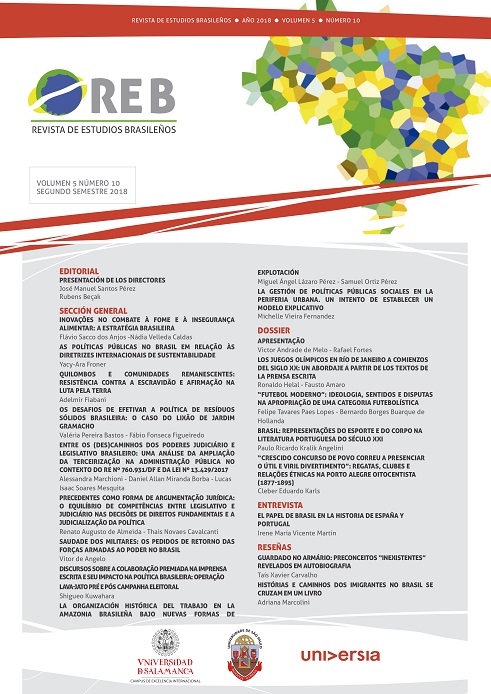“Modern football”
ideology, meanings, and disputes on the appropriateness of a football category
Keywords:
Professional football, organized supporters, collectives of fans, ideology, discourse analysisAbstract
This article analyzes the uses and meanings of the “modern football” category, as employed by subgroups and vanguards sporting clubs fans in Brazil. Considering the ideology concept, developed by John B. Thompson, we analyze a series of discourses of organized supporters’ leaders and collective of fans who counteract the economic, architectural, and organizational transformations taking place in the contemporary professional football. Through nine semi-structured interviews, we sought to understand how the term “against modern football,” originated in the 1970s Europe and widespread as a slogan by ultra European movements since the 1990s, has been appropriated in Brazil in the last decade, in response to sporting mega events carried out in the country (2007-2016) and the construction of multipurpose arenas, which supersede the model of public stadiums, in force since the second half of the 20th century. Our discourse analysis concludes that, although it is an important unifying issue to these football actors, who are part of asymmetrical power relations, the fight against the “modern football” involves a series of ambiguities in their narratives, since it is more reactive and circumstantial than effectively propositional and programmatic. When focusing our energy against the distortion of the football tradition, we perceive ambivalence in the appraisal of the past, generally conceived as authentic, spontaneous, and festive, in contrast to a present that fully compromises the “essence” and the “authenticity” lost with the new configuration of the media and commodified football.





